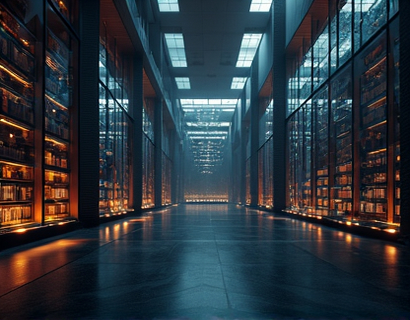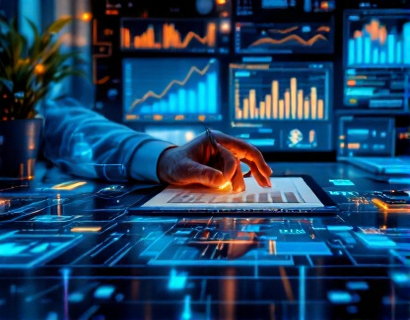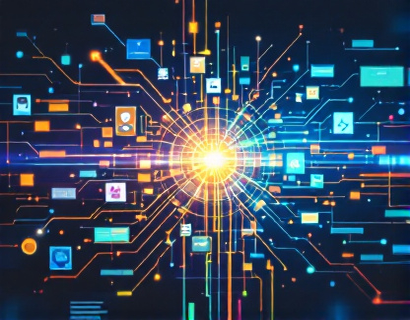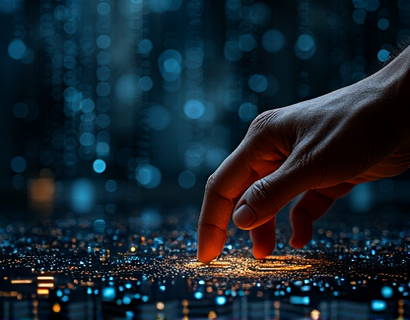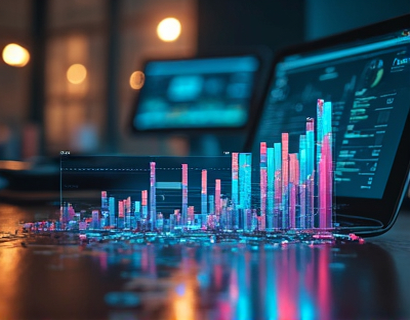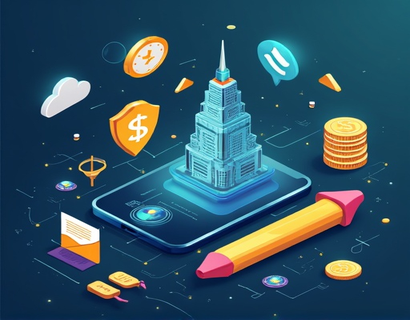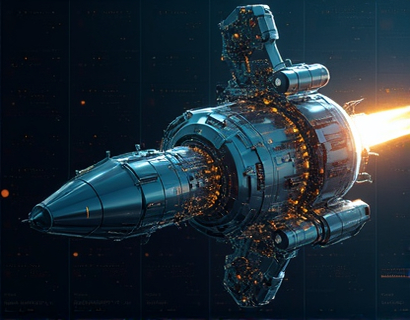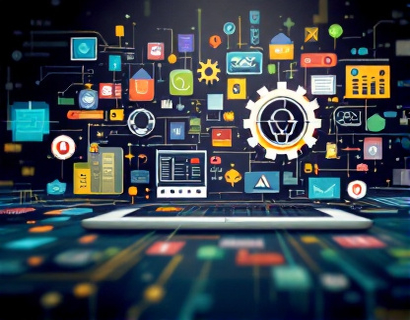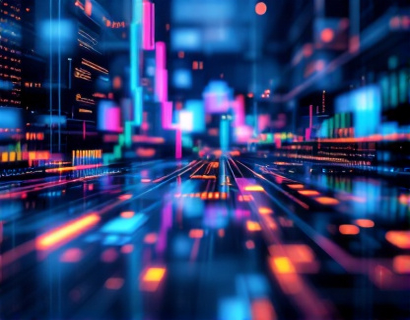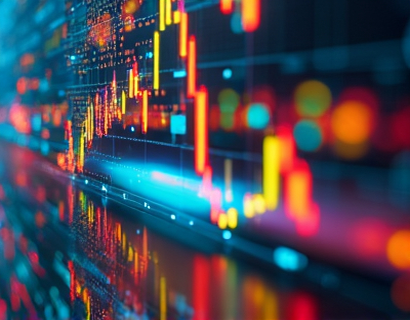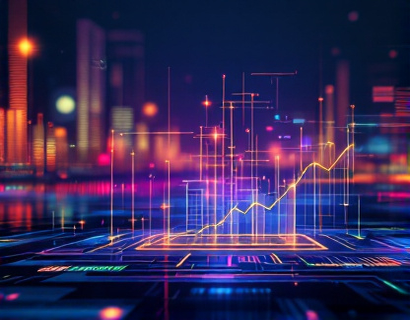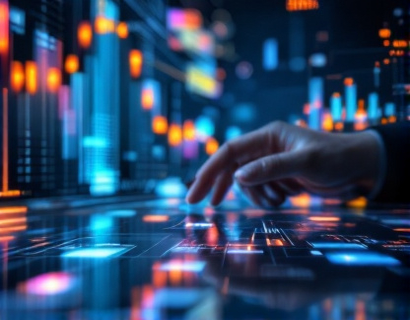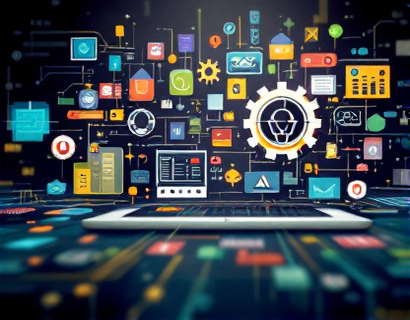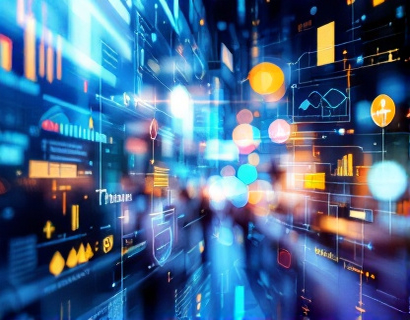AI and Crypto: Transforming Finance and Technology with Innovative Solutions for the Future
The intersection of artificial intelligence (AI) and cryptocurrency is ushering in a new era of innovation in finance and technology. This convergence is not just a trend but a fundamental shift that is redefining how we perceive and interact with digital assets and financial systems. The integration of AI into the crypto space is creating sophisticated tools and platforms that enhance security, efficiency, and user experience. This article delves into the transformative impact of this merger, exploring how it is setting new industry standards and opening up unprecedented opportunities for the future.
The crypto landscape has always been characterized by its decentralized and transparent nature, leveraging blockchain technology to create secure and tamper-proof transactions. However, the addition of AI brings a new dimension to this ecosystem. AI algorithms can analyze vast amounts of data in real-time, identifying patterns and making predictions that were previously impossible. In the context of cryptocurrency, this means more accurate market analysis, better risk management, and enhanced trading strategies.
Enhanced Market Analysis and Predictive Insights
One of the most significant contributions of AI to the crypto market is in the realm of market analysis. Traditional methods rely on historical data and basic statistical models, which often fail to capture the complex dynamics of cryptocurrency markets. AI, on the other hand, can process and analyze vast datasets, including news articles, social media sentiment, and transaction data, to provide comprehensive insights. This enables traders and investors to make more informed decisions, potentially leading to better investment outcomes.
Predictive analytics is another area where AI shines. By using machine learning algorithms, AI can identify trends and patterns that human analysts might miss. These algorithms can forecast price movements, market trends, and even potential regulatory changes. For instance, AI models can analyze the impact of news events on cryptocurrency prices by assessing the sentiment of related articles and social media posts. This real-time analysis allows for more timely and accurate trading decisions, reducing the risk of losses and increasing the potential for gains.
Improved Security and Fraud Detection
Security has always been a critical concern in the crypto space, with hacking incidents and fraudulent activities posing significant risks to users and platforms. AI technologies, particularly machine learning and deep learning, are revolutionizing how security is managed in cryptocurrency. These technologies can detect anomalies and suspicious activities in real-time, providing a robust defense against cyber threats.
Fraud detection systems powered by AI can monitor transactions and user behavior, identifying patterns that indicate fraudulent activity. For example, AI can detect unusual login patterns, suspicious transaction volumes, and other red flags that might signal a security breach. This proactive approach to security not only protects users but also enhances the overall trust and reliability of cryptocurrency platforms.
Moreover, AI can enhance the security of blockchain itself. Smart contracts, which are self-executing contracts with the terms directly written into code, can be vulnerable to bugs and exploits. AI tools can analyze smart contract code to identify potential vulnerabilities before they are exploited. This ensures that contracts are executed as intended, reducing the risk of financial loss and increasing the integrity of decentralized applications (dApps).
Optimized Trading and Robo-Advisors
The trading experience in the crypto market is being significantly enhanced through the use of AI-driven trading platforms and robo-advisors. These tools leverage AI to automate trading processes, execute strategies, and provide personalized advice to users. For individual investors who may lack the expertise or time to manage their crypto portfolios, robo-advisors offer a convenient and efficient solution.
AI-powered trading platforms can execute complex trading strategies, such as arbitrage, momentum trading, and hedging, with precision and speed. These platforms can operate 24/7, capitalizing on market opportunities that human traders might miss. Additionally, AI can adapt to changing market conditions, adjusting strategies in real-time to optimize performance.
Robo-advisors take this a step further by providing tailored investment advice based on an individual's risk tolerance, financial goals, and market conditions. By analyzing a user's profile and market data, these AI advisors can recommend optimal asset allocations and trading strategies. This democratizes access to professional-level investment advice, making it possible for a broader range of users to participate in the crypto market.
Enhanced User Experience and Personalization
The user experience in the crypto space is being transformed through AI-driven personalization. Platforms can use AI to understand user preferences and behavior, offering a more tailored and intuitive experience. For example, AI can recommend relevant articles, tutorials, and tools based on a user's interests and activities. This not only enhances user engagement but also helps in educating newcomers about the complexities of cryptocurrency.
Chatbots powered by natural language processing (NLP) are another innovation that is improving user experience. These chatbots can provide instant support and answers to common queries, reducing the need for human intervention and improving response times. They can also guide users through complex processes, such as setting up a wallet or executing a trade, making the overall experience more seamless and user-friendly.
Supply Chain Optimization and Tokenization
Beyond trading and security, AI and crypto are also transforming traditional supply chain management through tokenization. Tokenization involves representing physical assets as digital tokens on a blockchain, enabling fractional ownership and easier trading. AI can optimize this process by providing real-time data on asset conditions, market demand, and other relevant factors.
For instance, in the shipping industry, AI can predict delivery times, monitor cargo conditions, and optimize routes, while blockchain ensures transparent and secure tracking of goods. Tokens representing these goods can be traded or used as collateral, enhancing liquidity and efficiency. This combination of AI and crypto tokenization is revolutionizing industries such as logistics, real estate, and even art, by making assets more accessible and tradable.
Challenges and Considerations
While the integration of AI and crypto offers numerous benefits, it also comes with its own set of challenges. One of the primary concerns is the regulatory landscape. As AI and crypto continue to evolve, regulators are struggling to keep pace, leading to a patchwork of rules that can create uncertainty for businesses and users. Ensuring compliance while leveraging the full potential of these technologies requires careful navigation of legal frameworks.
Another challenge is the technical complexity involved in integrating AI with blockchain and crypto platforms. Developing robust and secure AI systems that can operate on decentralized networks requires specialized expertise and significant resources. Additionally, the ethical implications of AI, such as bias in algorithms and data privacy, must be carefully addressed to maintain trust and integrity in the ecosystem.
Future Prospects and Innovations
The future of AI and crypto is bright, with numerous innovations on the horizon. One area of excitement is the development of AI-driven decentralized finance (DeFi) platforms. These platforms aim to replicate traditional financial services, such as lending, borrowing, and insurance, in a decentralized and automated manner. AI can enhance these platforms by providing more accurate risk assessments, personalized financial products, and efficient dispute resolution mechanisms.
Another promising area is the integration of AI with quantum computing. Quantum computers have the potential to solve complex problems that are currently infeasible for classical computers, including certain types of AI algorithms. This synergy could lead to breakthroughs in cryptography, optimization, and data analysis, further solidifying the role of AI in the crypto ecosystem.
Moreover, the rise of Web3, a vision for the next generation of the internet powered by blockchain and decentralized technologies, will heavily rely on AI. Web3 applications will use AI to create more interactive, intelligent, and user-centric experiences, transforming how we interact with digital services and each other.
In conclusion, the convergence of AI and crypto is not just a technological advancement but a fundamental transformation of finance and technology. By enhancing market analysis, improving security, optimizing trading, personalizing user experiences, and revolutionizing supply chain management, this merger is setting new industry standards and opening up a world of possibilities. As the ecosystem continues to evolve, the potential for innovation and growth remains immense, promising a future where finance and technology are more interconnected and powerful than ever before.







